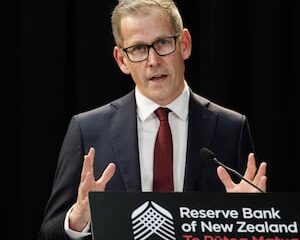Business
Weighing the Benefits of Keeping Your First Home as a Rental

As borrowers consider upgrading to a new home, many face a critical question: should they retain their first property as a rental? According to Nadine Higgins, a property expert, this decision hinges on various financial factors, including current lending regulations and property management considerations.
Reserve Bank regulations require most borrowers to have a minimum of 30% equity in their existing property when applying for a new mortgage. This requirement can complicate the decision-making process for homeowners thinking about keeping their initial residence as a rental. While interest on loans for investment properties can be tax-deductible, interest on loans for personal residences typically is not, which is an important factor to consider.
In addition to understanding the financial implications, homeowners must also evaluate the ongoing responsibilities of managing a rental property. Healthy Homes standards dictate specific requirements for rental properties, aimed at ensuring safe and healthy living conditions. These standards may necessitate additional investments to meet compliance, which can introduce unforeseen financial risks.
Higgins notes that many of her clients in recent years have come from areas outside of Auckland, where mortgage debt levels tend to be more manageable. This geographical difference has led to intriguing discussions about the benefits of retaining a first home when moving to a second or “forever” residence. For clients based in Auckland, however, the high prices of housing and associated debt levels often make the prospect of maintaining a rental property less appealing.
When evaluating whether to keep a first home, potential landlords must weigh several factors. The income generated from rental properties can provide financial stability and contribute to mortgage payments on the new home. Yet, the responsibilities of being a landlord can also be demanding, requiring time and resources that some homeowners may not be prepared to dedicate.
As these homeowners navigate their options, it is essential to consider both the potential rewards and risks. Keeping the first property can be a viable strategy for some, but it may not make sense for everyone. Engaging a financial advisor or property expert can provide clarity and help tailor decisions to individual circumstances.
Ultimately, the choice to retain a first home as a rental property is not one-size-fits-all. Homeowners must assess their financial situation, the current housing market, and personal readiness for the responsibilities of property management before making a decision.
-

 World4 weeks ago
World4 weeks agoPrivate Funeral Held for Dean Field and His Three Children
-

 Top Stories4 weeks ago
Top Stories4 weeks agoFuneral Planned for Field Siblings After Tragic House Fire
-

 Sports3 months ago
Sports3 months agoNetball New Zealand Stands Down Dame Noeline Taurua for Series
-

 Entertainment3 months ago
Entertainment3 months agoTributes Pour In for Lachlan Rofe, Reality Star, Dead at 47
-

 Entertainment2 months ago
Entertainment2 months agoNew ‘Maverick’ Chaser Joins Beat the Chasers Season Finale
-

 Sports3 months ago
Sports3 months agoSilver Ferns Legend Laura Langman Criticizes Team’s Attitude
-

 Sports2 months ago
Sports2 months agoEli Katoa Rushed to Hospital After Sideline Incident During Match
-

 Politics3 months ago
Politics3 months agoNetball NZ Calls for Respect Amid Dame Taurua’s Standoff
-

 World1 month ago
World1 month agoInvestigation Underway in Tragic Sanson House Fire Involving Family
-

 Entertainment2 weeks ago
Entertainment2 weeks agoJacinda Ardern Discusses Popularity Decline on Graham Norton Show
-

 Sports1 week ago
Sports1 week agoPressure Mounts on All Blacks Coaches Amid Internal Strife
-

 Sports3 weeks ago
Sports3 weeks agoEli Katoa Shares Positive Recovery Update After Brain Surgery





















